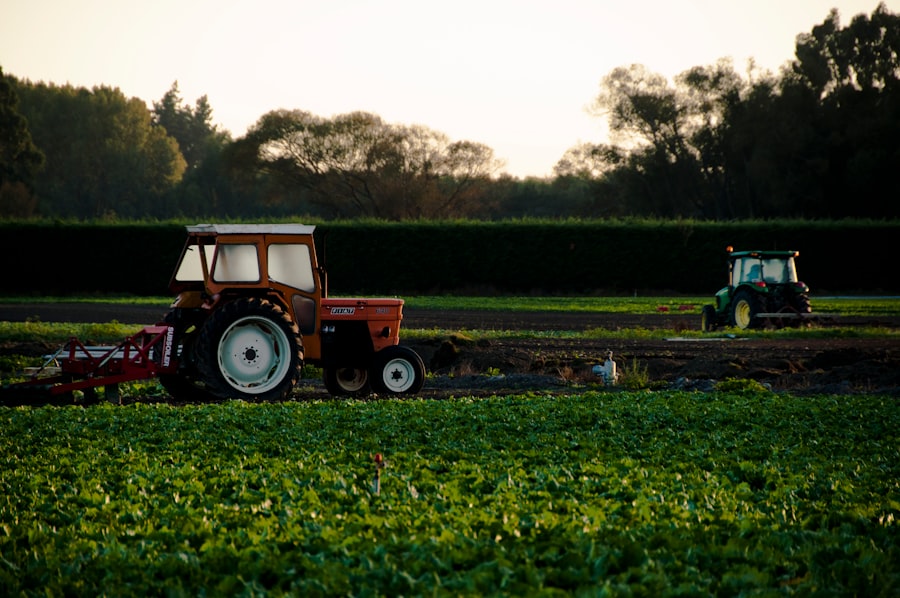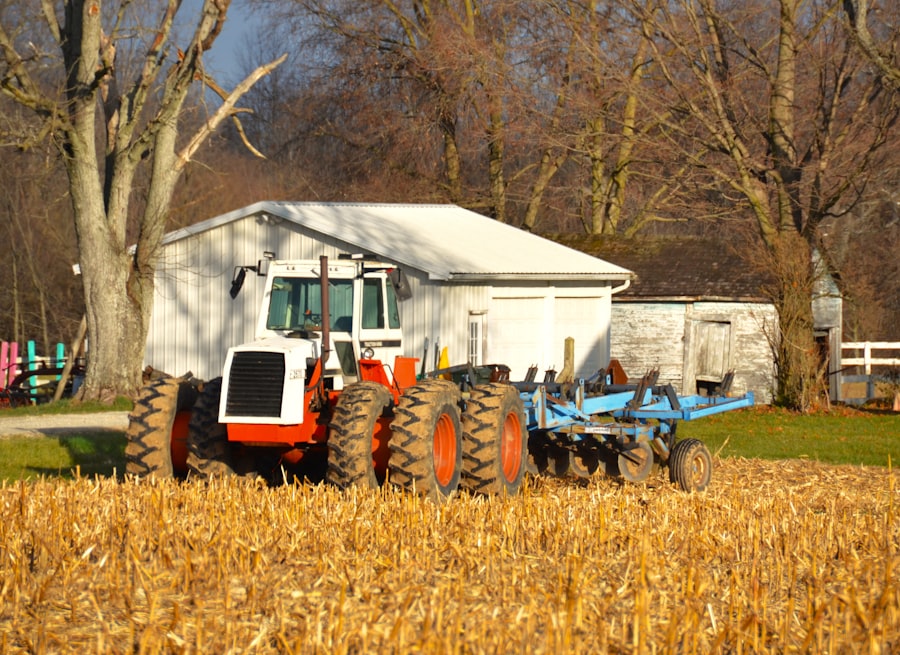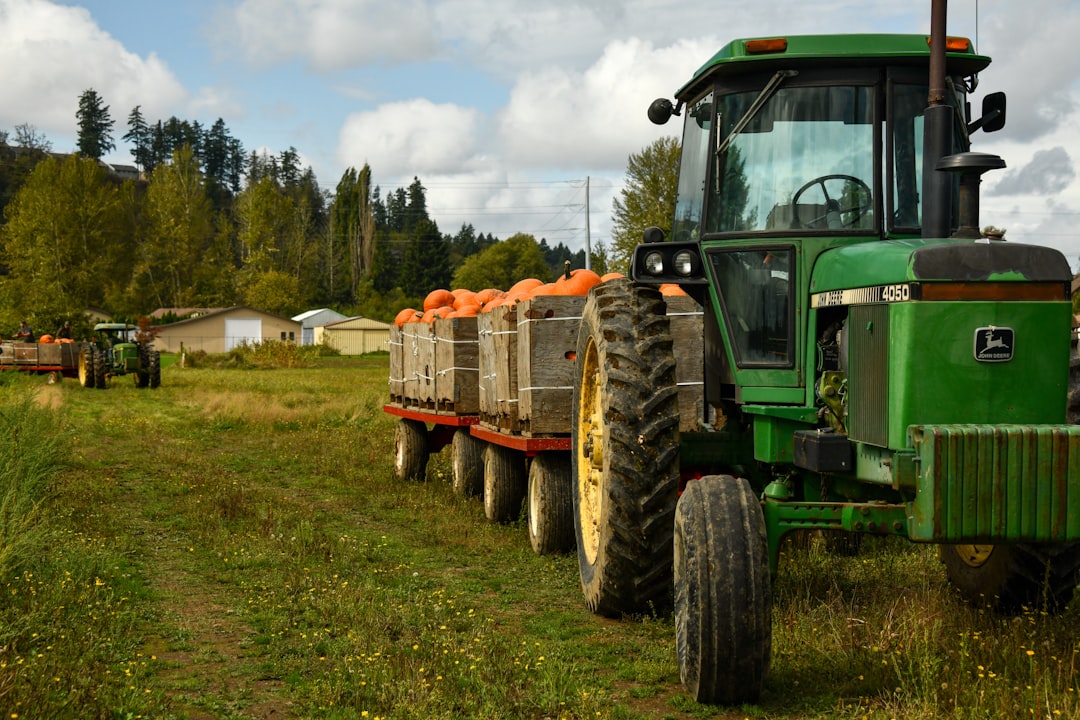When you think about agricultural lobbying, it’s essential to grasp its fundamental principles.
This can involve a wide range of activities, from meeting with lawmakers to participating in public campaigns aimed at raising awareness about specific issues affecting agriculture.
Understanding this process is crucial for anyone involved in farming or related industries, as it can significantly impact your livelihood and the broader agricultural landscape. You may wonder why lobbying is necessary in the first place. The agricultural sector is influenced by numerous factors, including economic conditions, environmental regulations, and trade agreements.
These elements can change rapidly, and without effective lobbying efforts, farmers and agricultural businesses may find themselves at a disadvantage. By engaging in lobbying, you can help ensure that your voice is heard in the halls of power, advocating for policies that support sustainable farming practices, fair pricing, and access to resources.
Key Takeaways
- Understanding the basics of agricultural lobbying is essential for farmers to advocate for their needs and concerns effectively.
- Identifying key players in farm policy, such as legislators and government officials, is crucial for influencing agricultural policies.
- Navigating the legislative process requires farmers to understand how laws are made and how they can participate in the process.
- Building relationships with legislators is important for farmers to gain support for their agricultural lobbying efforts.
- Leveraging agricultural associations and organizations can provide farmers with a stronger voice and more resources for lobbying efforts.
Identifying Key Players in Farm Policy
To effectively navigate the world of agricultural lobbying, you need to identify the key players involved in farm policy. This includes not only legislators but also various stakeholders such as agricultural associations, advocacy groups, and industry leaders. Understanding who these players are and what interests they represent will enable you to tailor your approach when advocating for your needs.
Legislators play a pivotal role in shaping agricultural policy.
By familiarizing yourself with your local representatives and their positions on agricultural issues, you can better strategize your lobbying efforts.
Additionally, consider the influence of agricultural associations, which often serve as a collective voice for farmers. These organizations can provide valuable resources and support in your advocacy efforts.
Navigating the Legislative Process

Navigating the legislative process can seem daunting, but understanding its structure is vital for effective lobbying. The process typically begins with the introduction of a bill, followed by committee reviews, debates, and votes in both chambers of Congress or state legislatures. Each step presents opportunities for you to engage with lawmakers and advocate for your interests.
As you familiarize yourself with this process, pay attention to key timelines and deadlines. Knowing when bills are scheduled for discussion or vote can help you plan your advocacy efforts more effectively. Additionally, consider attending committee hearings or public forums where agricultural issues are discussed.
These events provide a platform for you to voice your concerns and influence decision-makers directly.
Building Relationships with Legislators
| Metrics | Results |
|---|---|
| Number of meetings with legislators | 15 |
| Legislator response rate to outreach | 80% |
| Number of co-sponsored bills | 5 |
| Legislator satisfaction survey rating | 4.5/5 |
Building strong relationships with legislators is one of the most effective strategies for successful lobbying. When you establish rapport with your representatives, they are more likely to listen to your concerns and consider your perspective when making decisions. Start by reaching out to them through emails or phone calls to introduce yourself and express your interest in agricultural issues.
In-person meetings can be particularly impactful. Consider scheduling visits to their offices or attending town hall meetings where you can engage directly with them and their staff. During these interactions, be prepared to share your experiences as a farmer and explain how specific policies affect your operations.
Personal stories can resonate deeply with legislators and help them understand the real-world implications of their decisions.
Leveraging Agricultural Associations and Organizations
Agricultural associations and organizations can be invaluable allies in your lobbying efforts. These groups often have established relationships with lawmakers and a wealth of resources at their disposal. By joining an association relevant to your interests, you gain access to a network of like-minded individuals who share your goals and challenges.
These organizations frequently engage in lobbying on behalf of their members, advocating for policies that benefit the agricultural community as a whole. By participating in their initiatives, you can amplify your voice and contribute to collective efforts that have a greater impact than individual actions alone. Additionally, many associations offer training programs and resources to help you develop your advocacy skills further.
Communicating Your Needs and Concerns Effectively

Effective communication is key when it comes to lobbying for agricultural policies that matter to you. When reaching out to legislators or participating in advocacy campaigns, it’s essential to articulate your needs clearly and concisely. Start by identifying the specific issues that affect your farming operations and gather relevant data or examples to support your case.
When communicating with lawmakers, focus on how proposed policies will impact not only your farm but also the broader community and economy. Use straightforward language and avoid jargon that may confuse those unfamiliar with agricultural practices. By presenting your concerns in a relatable manner, you increase the likelihood that legislators will understand and prioritize your needs.
Staying Informed on Policy Developments
Staying informed about policy developments is crucial for effective lobbying. Agricultural policies can change rapidly due to shifts in political leadership, economic conditions, or public opinion. To keep up with these changes, consider subscribing to newsletters from agricultural associations or following relevant news outlets that cover farm policy issues.
Additionally, attending workshops or conferences focused on agricultural advocacy can provide valuable insights into emerging trends and challenges within the sector. Engaging with experts in the field can also help you understand the implications of new policies and how they may affect your operations. By remaining informed, you position yourself as a knowledgeable advocate who can engage meaningfully with legislators.
Participating in Advocacy Campaigns
Participating in advocacy campaigns is an excellent way to amplify your voice and influence policy decisions. Many agricultural associations organize campaigns aimed at raising awareness about specific issues or mobilizing support for particular legislation. By joining these efforts, you can connect with other farmers and stakeholders who share your concerns.
Advocacy campaigns often utilize various strategies, including social media outreach, public demonstrations, or letter-writing initiatives directed at lawmakers. Consider how you can contribute to these efforts based on your strengths and resources. Whether it’s sharing information on social media or organizing local events to raise awareness about agricultural issues, every action counts in building momentum for change.
Collaborating with Other Farmers and Stakeholders
Collaboration is a powerful tool in agricultural lobbying. By working together with other farmers and stakeholders, you can create a united front that amplifies your collective voice. Consider forming coalitions or joining existing groups focused on specific issues affecting agriculture in your region.
Collaboration allows you to share resources, knowledge, and strategies that can enhance your advocacy efforts. For example, if you’re facing challenges related to environmental regulations, partnering with other farmers who share similar concerns can help you present a more compelling case to lawmakers. Together, you can organize meetings with legislators or participate in joint advocacy campaigns that highlight the importance of sustainable farming practices.
Utilizing Grassroots Advocacy Strategies
Grassroots advocacy strategies are essential for mobilizing support from the community and influencing policymakers at all levels. These strategies often involve engaging everyday citizens in advocacy efforts, encouraging them to voice their concerns about agricultural issues that matter to them. Consider organizing community events or informational sessions where you can educate others about the challenges facing farmers today.
By raising awareness among consumers and local residents, you create a broader base of support for your advocacy efforts. Additionally, grassroots campaigns often leverage social media platforms to reach a wider audience quickly. Encourage others to share their stories and experiences related to agriculture, creating a groundswell of support that lawmakers cannot ignore.
Adapting to Changes in Farm Policy and Lobbying Efforts
The landscape of farm policy and lobbying is constantly evolving, requiring you to remain adaptable in your approach. Changes in political leadership or shifts in public opinion can significantly impact the priorities of lawmakers and the effectiveness of advocacy efforts. To navigate these changes successfully, stay engaged with current events and be prepared to adjust your strategies accordingly.
As new challenges arise within the agricultural sector—such as climate change or trade disputes—be proactive in seeking solutions that align with your values and goals as a farmer. This may involve collaborating with other stakeholders or exploring innovative approaches to advocacy that resonate with both lawmakers and the public. By remaining flexible and responsive to changes in the policy environment, you position yourself as an effective advocate for the future of agriculture.
In conclusion, understanding agricultural lobbying is essential for anyone involved in farming or related industries. By identifying key players, navigating the legislative process, building relationships with legislators, leveraging associations, communicating effectively, staying informed, participating in campaigns, collaborating with others, utilizing grassroots strategies, and adapting to changes, you can become an influential advocate for policies that support sustainable agriculture and benefit farmers like yourself.
In the complex landscape of agricultural lobbying and farm policy, understanding the intricate dynamics between policymakers and agricultural stakeholders is crucial. A related article that delves into these dynamics can be found on How Wealth Grows, which provides insights into the economic forces shaping agricultural policies. This article explores how lobbying efforts by agricultural groups influence legislation and the allocation of resources, ultimately impacting the farming community and the broader economy. For a deeper understanding of these interactions, you can read more about it here.
FAQs
What is agricultural lobbying?
Agricultural lobbying refers to the efforts of individuals, organizations, and interest groups within the agricultural industry to influence government policies and decisions that affect the agricultural sector.
What is farm policy?
Farm policy refers to the set of laws, regulations, and programs that govern the agricultural industry, including issues such as subsidies, trade policies, environmental regulations, and food safety standards.
How does agricultural lobbying influence farm policy?
Agricultural lobbying can influence farm policy by advocating for specific policies, providing information and expertise to policymakers, and mobilizing support from stakeholders to shape legislation and regulations that benefit the agricultural industry.
Who engages in agricultural lobbying?
Agricultural lobbying involves a wide range of participants, including farmers, agricultural trade associations, agribusinesses, food and beverage companies, environmental organizations, and other stakeholders with an interest in shaping farm policy.
What are some common issues that agricultural lobbying focuses on?
Common issues that agricultural lobbying focuses on include farm subsidies, trade agreements, crop insurance, environmental regulations, food safety standards, labor policies, and research and development funding for agricultural innovation.
